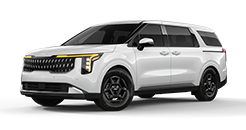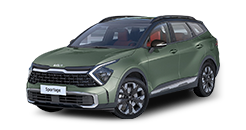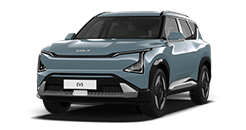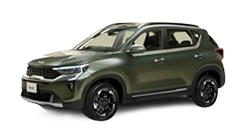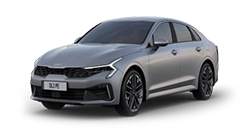open menu
- Home>
- Discover kia>
- ASK>
- What is cruise control?
What is cruise control?
“Cruise control allows you to maintain a set speed without using the accelerator. Once you've selected the speed, you can take your foot off the accelerator and the vehicle will cruise at that speed.”

Cruise control is a feature that comes in handy when you drive at a constant speed. It is an electric system that allows you to set your car to a specific speed, letting you take your foot off the accelerator pedal. So, it can ease foot-fatigue and stress over a long drive. Another great benefit to using cruise control is that you are going to have greater fuel efficiency. Your vehicle will consume much less fuel if you cruise at a steady speed rather than accelerating at each section of the open road. When you accelerate sharply, it makes your engine use more energy, and you could be using 60% more fuel than one who uses cruise control. Ultimately, it's not hard to save on fuel if you let your vehicle automatically maintain a steady cruising speed.
The leading edge of cruise control today is adaptive cruise control. Almost all cars now will be equipped with this smart system. Just as conventional cruise control, adaptive cruise control allows you to set a desired travel speed. But the difference is that the adaptive cruise control maintains a safe distance between the car in front of you and your car at a consistent pace by using the forward-mounted sensors. For instance, if the car ahead of your vehicle begins to slow, adaptive cruise control will use the engine brake to automatically slow the pace of your vehicle and maintain the selected distance. Many say adaptive cruise control is a step to autonomous cars in the future. But it is not quite fully autonomous driving, since you have to keep your hands on the wheel and be fully cognizant of the road.
ON/OFF: To set the cruise control, press the ON/OFF button. You will see the cruise light illuminate on the dashboard which means the system is activated. To turn the system off, press this button again.
Res +: Press this button if you want to increase the cruising speed. Each time you hit the button, the vehicle will accelerate by 1 mph. You can also use this button to resume your previously set speed.
Set -: This button will decrease the set speed. Each time you press the button, the cruising speed will decrease by 1 mph. Once you reached the desired speed, hit the “Set” button and the “Cruise Set” icon will appear on the dashboard. Then you can take your foot off the gas pedal and the car will maintain the speed for you.
Cancel: When it's time to cancel the cruise control mode, like when you exit the highway or if there is heavy traffic ahead, press this button to disengage the cruise control system. Or you can simply depress the brake pedal to cancel the system.

- On wet roads, it could be dangerous to use cruise control. It will be less effective in the rain, and cruise control may upset the balance and reaction times under rainy conditions.
- During rush hour, it is a good idea to leave the cruise system off. With conventional cruise control, you will have to continuously turn it off when traffic slows down and you can get into an accident if you are distracted while it is active.
- On challenging winding roads, you should not use cruise control. Note that cruise control is primarily designed to enable you to cruise on the highway at a set speed. If you are not doing so, it is best not to use it.
